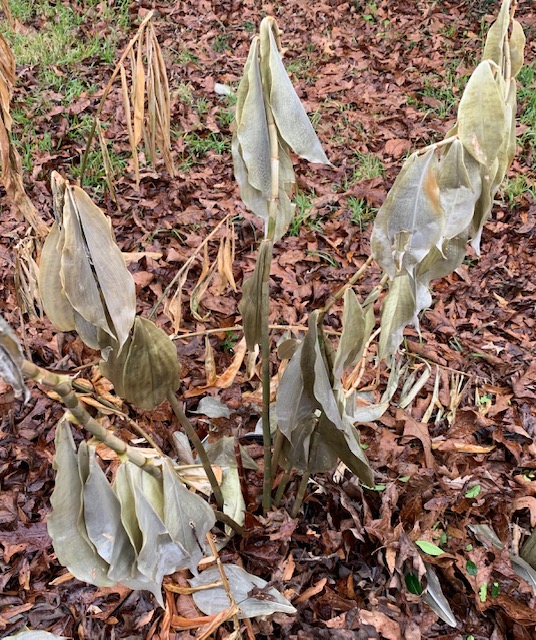Fall, winter and even early spring can be a rollercoaster ride of temperatures here in Northwest Florida. One week it dips to freezing for a short time and the next week it rises to spring-like temperatures. We need to hold on for this ride of up and down temperatures and not overreact too soon.
Following the sudden ride down to the lower temperatures, we may think winter is over. But we don’t see the next drop in temperatures that’s coming, as we are experiencing the ride upwards in temperatures.
On average, it’s not until we reach mid-March that we expect our last killing frost. A killing frost is heavy enough to kill tender plant growth. And, we can have light frosts well into the latter part of March and into early April. This is particularly true in the more northern portions of our Panhandle Counties.
The main point is to not get spring fever too early and encourage new plant growth by pruning or fertilizing too soon.

When landscape plants freeze, the first impulse may be to get out the pruning shears and cut away dead and dying leaves and branches. But this isn’t a good idea. Pruning can force new tender growth that is more likely to be injured by the next freeze. And, you can’t tell how much damage has been done until plants start new growth in spring. If you prune immediately after a freeze, you may cut away live wood that doesn’t have to be lost. Also, leaves and branches, which have been killed, can help protect the rest of a plant against further cold injury.
Some people want to “jump start” their lawns before our weather will allow our grasses to grow. Waiting allows for more efficient use of the lawn fertilizer. You will not injure your lawn by waiting but you can certainly injure your lawn by fertilizing too early.
So, have patience, allow your lawn to green up on its own and then fertilize, even if it’s not until April or May.
Finally, be a little philosophical. If you do lose one or two of your tender ornamentals, so what? Worse things could happen. And now you have a chance to add something new, perhaps some species native to our area that is not as subject to cold damage.
Even with this winter/spring rollercoaster ride, with thousands of plants to choose from and a generally mild climate, who can complain?
- Nuisance Gnats abound in Northwest Florida this spring - June 26, 2025
- Watering to Establish a New Lawn - May 15, 2025
- Sweet Onion and Strawberry Success, a Matter of Variety and Timing - April 10, 2025
